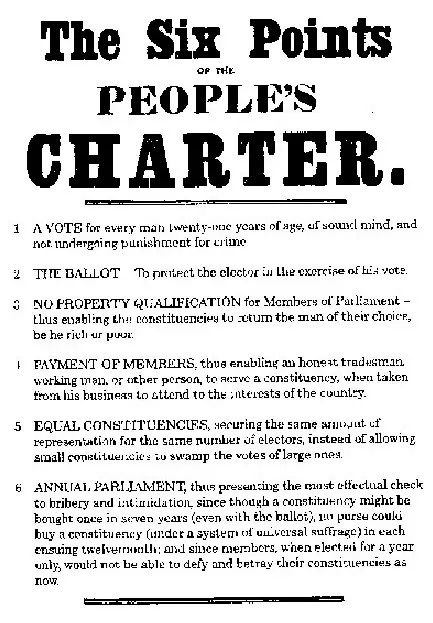The chartist movement was a political, as well as a social reform that was undertaken in the United Kingdom. This happened somewhere around the mid 19th century.
It was the first mass working class labour movement. The leaders who participated in this were known as the physical force. This movement was largely a result of the interest of the general public in the politics.

Origin
This occurred when the middle class was given the right to vote. There was a reform act that was passed in 1832 and it did not include people who were a part of the working class. The artisans and labourers did not enjoy very good social and industrial conditions.
Charter of Chartist movement
The following were the main elements of the charter.
1. The right to vote above the age of 21
2. The system of secret ballot
3. Payment to members so that there is honest trade and business
4. Equal representation per constituency.
5. No property as a qualification to become a member of the parliament
6. Annual parliaments.
The Chartism was quite a national movement and it was particularly strong in towns of Yorkshire and Lancashire. These were the textile towns. The leaders here were not people who were a failure but they were people who were mere drop outs.
In the year 1842, more force came into action against the authorities. It was in may that a number of strikes and industrial disputes happened. This was then followed by the government on the second charter. It was I 1845 that Feargus OConnor also became very interested in the lead question and thus the Chartist land plan was also launched. The idea behind this was that people might leave the factories and might like to work quite independently in the cottages.
This was a lot of mass appeal and around 600 branches were formed to deal with this.
It was in 1918 that 5 out of the mentioned points of the charter were accepted. Chartism was something that had s a huge influence on the formation of the British colonies.
There was quite a deep and permanent impact of Chartism on the people of Britain and also on the history of Britain. It was known as the first and a huge effort of the working class in order to help themselves.
